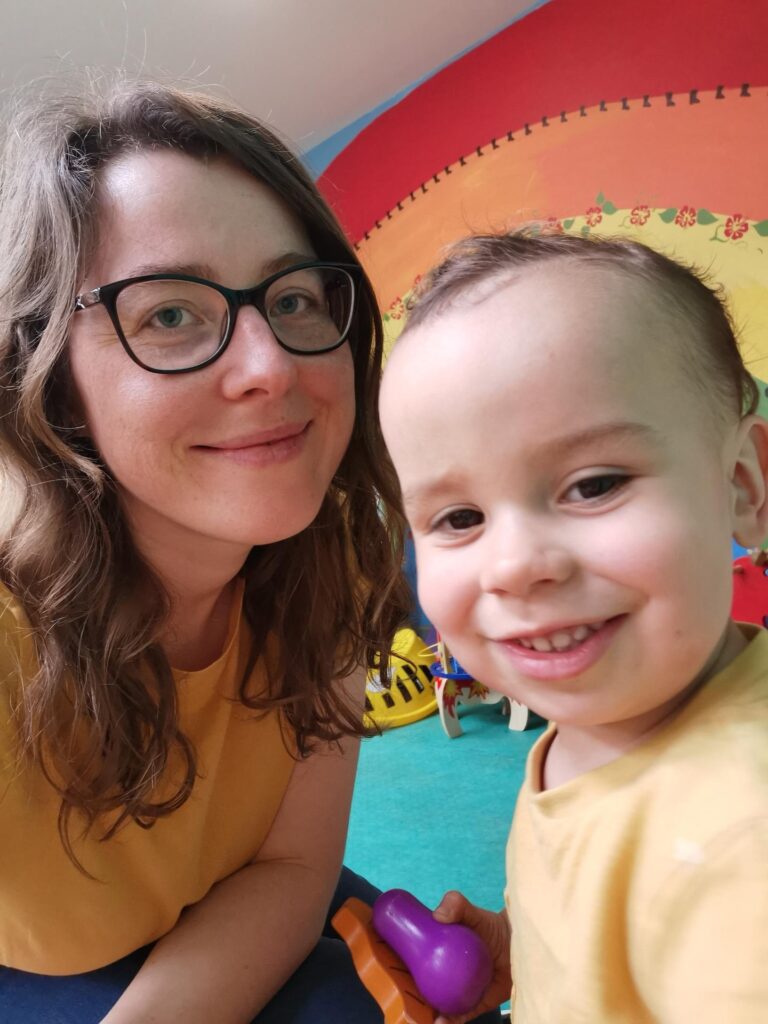A DUO of scots programmes have produced a new suite of resources to help healthcare professionals tackle mental health stigma for parents to seek help when struggling.
See Me and The Mental Health Foundation launched the resources on Monday for Maternal Mental Health Week to help end mental health stigma and discrimination.

Lynne Fox, 32, from Dunfermline, gave birth to her first child in 2020. During her pregnancy, she experienced extreme anxiety and struggled to get support.
She says that the new resources have huge potential to make a difference for new and expectant parents across Scotland.
Speaking today she said: “I was delighted to be pregnant, I was really happy – but I also had very bad anxiety. It was really difficult because it started to consume me.
“If I wasn’t sleeping, it was on my mind all the time that something bad was going to happen to me, something bad was going to happen to the baby.
“I spoke to my GP and I spoke to my midwife so many times, and they would say, ‘This is normal, it’s your first baby.’
“I understand that in any pregnancy, there can be a normal level of anticipation and worry because you don’t know what’s going on and so much of it is outside of your control but for me, it was impacting on so many areas of my life that I really didn’t feel like it was normal.
“I was constantly dismissed – not just once or twice, this was multiple times. I started to feel like I was being melodramatic – that I should just be excited.
“When you hear again and again that it’s ‘normal’, you can start to doubt yourself.”
Lynne is now pregnant with her second child and experiencing similar feelings of anxiety.
This time, she has been referred for hypnobirthing support and counselling, which she hopes will help her to manage her anxiety and lead to a more positive pregnancy.
She added: “With my first pregnancy, I feel like I wasn’t listened to at all. We need more guidelines like this and pathways in place to help new parents understand what support is out there, so that it doesn’t feel as difficult for people to speak about it.
“I’d hope that healthcare professionals can be less dismissive too.”
It is estimated that 20 per cent of mothers and 10 per cent of fathers experience poor mental health in the perinatal period.
This is the time from pregnancy through to birth and the first year of a child’s life.
Stigma attached to both pre-natal and post-natal mental health can prevent parents like Lynne from speaking up and seeking help.
Stigma can manifest itself in a number of ways, including judgement, dismissal, minimisation of symptoms or experiences, and lack of understanding from others.
For many expectant or new parents, this can include a lack of understanding from health professionals.
The research underpinning the guidelines found that many parents talk about how distress at a time when happiness is expected is perceived as a sign of weakness.
Being seen as ‘coping’ with pregnancy or new parenthood is often associated with ‘good mothering’.
Those who do struggle with their mental health can feel guilty or ashamed of their symptoms or feelings, which can be a barrier to seeking support.
The stigma associated with mental illness can be exacerbated by becoming a parent, with some feeling doubly stigmatised because they feel that their capacity to be ‘a good mother’ is automatically doubted.
The new guidance provides a framework to help practitioners improve services, and covers a range of key topics.
This includes inclusive commissioning, peer support, and workforce development and capacity.
The guidelines are accompanied by a set of practice case studies, showcasing mental health inclusive perinatal care and support in practice – and now a list of useful resources and a literature review.
The resources have been produced as part of the Scottish Government’s commitments within the Perinatal Mental Health Peer Support Action Plan and Coronavirus (COVID-19) Mental Health Transition and Recovery Plan.
Wendy Halliday, director of See Me, said: “Pregnancy, birth and beyond can be an exciting, emotional and scary time, and it’s vital that everyone is able to get the help they need if they do start to struggle.
“Many expectant parents wouldn’t think twice about asking for help if they had a physical problem – and it should be the same when it comes to mental health.
“We know, however, that stigma can cause many to hold back.
“The new resources will provide practitioners, commissioners and service providers with a really robust framework to improve services and support, and remove the barriers which stigma so often presents.”

